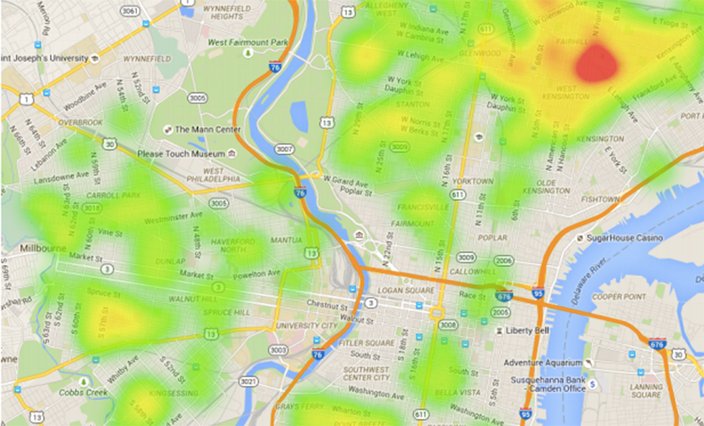
June 10, 2015
The Philadelphia District Attorney's Office forfeited more than $1 million in cash from about 1,500 Philadelphians who have not been convicted of a crime, according to a report by the ACLU of Pennsylvania.
In an examination of summary data on every forfeiture case from 2011 to 2013 and a more detailed look at 350 cases compiled in a random sample, the ACLU estimated that 32 percent of cash forfeitures are not supported by a conviction. Of those cash cases, 71 percent of property owners are African American.
The report, released earlier this month, comes as civil asset forfeiture laws fall under scrutiny across the country. The laws enable police officers to seize property from people they suspect of committing a crime. Under civil law, the property can be taken without a criminal charge or conviction.
“Supporters of the current civil asset forfeiture process say it’s a necessary tool for stopping drug kingpins," said Reggie Shuford, executive director of the ACLU of Pennsylvania, in a statement. "But forfeiture has been used against ordinary citizens, many of whom are poor and without the resources to fight back against the strong arm of the government.”
About 6,000 forfeiture cases are filed annually in Philadelphia, the report found, resulting in the forfeiture of about 100 homes, 150 vehicles and $4 million in cash. The report estimated annual forfeiture revenue totals at about $5 million, the bulk coming from small amounts of cash.
About $2.2 million of the city's forfeiture proceeds go to the DA's Office, comprising 7.3 percent of its budget, the ACLU claimed.
District Attorney Seth Williams released a statement accusing the ACLU of falsely claiming the mantle of the term "innocence" in its report.
“Forfeiture is not a criminal process," William said. "It is a civil lawsuit, like any case in which someone is sued for causing damage to person or property. If the perpetrator loses the lawsuit, he is not ‘innocent’ any more than the reckless driver who crashes into your car. Remember, criminal charges are a separate matter, they might even be beaten in court.
"But if the perpetrator is brought into court in a civil case and he fails to convince the judge, agrees he was wrong or just doesn’t bother to show up he is liable and there will be a civil penalty. That is drug forfeiture."
Many property owners do not dispute the forfeiture cases, the ACLU found, citing a lack of notice, procedural hurdles and petty cash sums.
Failure to appear at a forfeiture hearing results in an automatic forfeiture. Many property owners disputing a forfeiture case needed to appear at a minimum of four hearings before having their case decided, the report found.
For forfeiture sums under $201, the report found only three percent of property owners disputed the case. The ACLU found that only 34 percent of property owners received proper notice of their forfeiture cases, including five percent of cases where the DA's Office did not have proof of issuing any notice.
About half of all cash cases involved sums less than $192, a figure the ACLU claims might not be worth disputing. A minimum wage worker would lose $232 in wages by missing four days of work.
